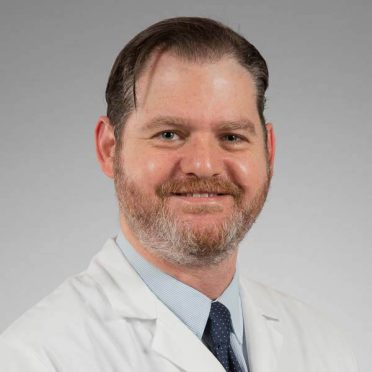It’s amazing what we’ll suffer through when we don’t know any better. Like, for example, the horrible discomfort of “just” acid reflux — which may actually be gastroesophageal reflux disease (GERD).
For many people, quality of life hinges on a proper diagnosis. For some, their actual life does too, since GERD is often linked to esophageal cancer.
Wondering which you have? There’s really only one way to know for sure.
When it only happens once in awhile, it’s acid reflux.
If you’ve ever had heartburn, you’ve had acid reflux.
It’s a digestive misfire — usually due to overeating, alcohol or caffeine — where acid from your stomach flows back up your food pipe. The usual result is burning pain in your chest.
When this only happens occasionally, it’s nothing to write home about.
“Almost everybody experiences acid reflux at some point,” says Kenneth M. Schwartz, MD, surgical director of Hartford HealthCare’s Swallowing and Reflux Program in Cheshire, Meriden and Southington.
> Related: Is Alcohol Giving Me Acid Reflux?
When you have ongoing symptoms, it may be GERD.
Too much acid reflux means a much bigger problem: GERD.
GERD is a chronic type of acid reflux, where you experience reflux multiple times a week. All that irritation to your esophagus can trigger near-constant symptoms.
That may include:
- Heartburn.
- Backwash in your nose and mouth.
- Bitter taste.
- Dry cough.
- Trouble swallowing.
- Lump in your throat.
For some people, GERD is painfully obvious: They wake up with bile rushing into their nose and mouth, or can’t bend over to tie their shoes without regurgitating their stomach contents. But not everyone.
“I see patients who have a chronic cough or a lump in their throat, but because they don’t have heartburn, they thought it was nothing. You can have reflux without heartburn,” says Dr. Schwartz.
> Want more health news? Text StartHere to 85209 to sign up for text alerts
To know if you have acid reflux or GERD, you need the right team and tests.
“Unfortunately, GERD is overly treated and poorly diagnosed,” says Dr. Schwartz. “Too many people are taking a pill for something they weren’t actually tested for.”
Look for a clinic with:
- A range of experts, from GI and neuro-GI to ENT.
- The ability to coordinate all the appropriate tests, like an endoscopy.
- Multiple treatment options, from medication to surgery.
Patients come to Hartford HealthCare’s Swallowing and Reflux Program from as far as Washington D.C. Many had all but given up on a solution until they learn about the treatments here.
“I hear all the time: ‘I can’t believe nobody told me about this option sooner,’” says Dr. Schwartz. “We give patients their quality of life back.”
Testing for acid reflux or GERD can also detect esophageal cancer.
Even if acid reflux isn’t a drag on your quality of life yet — or you’re just too stubborn to admit it — there’s another reason to make sure it hasn’t progressed to GERD.
Esophageal cancer rates are rising, and GERD is related. Some of the tests for GERD, like an endoscopy, can alert you to cancer early, when you have the best chance of recovery.
“Early testing means you’re getting diagnosed early,” says Dr. Schwartz. “That’s when reflux stops being about, ‘My quality of life is hell,’ to ‘Hey, we better take this seriously.”



